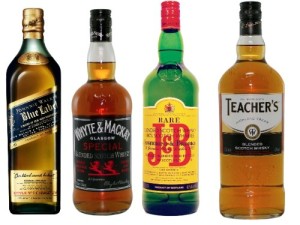Intellectual property (IP) refers to creations of the intellect for which a monopoly is assigned to designated owners by law. Intellectual property rights (IPRs) are the protections granted to the creators of IP, and include trademarks, copyright, patents, industrial design rights, geographical indications and in some jurisdictions trade secrets. Artistic works including music and literature, as well as discoveries, inventions, words, phrases, symbols, and designs can all be protected as intellectual property.
Trademarks
![]() A trademark is a sign capable of distinguishing the goods or services of one enterprise from those of other enterprises. Trademarks date back to ancient times when craftsmen used to put their signature or “mark” on their products.
A trademark is a sign capable of distinguishing the goods or services of one enterprise from those of other enterprises. Trademarks date back to ancient times when craftsmen used to put their signature or “mark” on their products.
Copyright
 Copyright is a legal term used to describe the rights that creators have over their literary and artistic works. Works covered by copyright range from books, music, paintings, sculpture and films, to computer programs, databases, advertisements, maps and technical drawings.
Copyright is a legal term used to describe the rights that creators have over their literary and artistic works. Works covered by copyright range from books, music, paintings, sculpture and films, to computer programs, databases, advertisements, maps and technical drawings.
Patents
 A patent is an exclusive right granted for an invention. Generally speaking, a patent provides the patent owner with the right to decide how – or whether – the invention can be used by others. In exchange for this right, the patent owner makes technical information about the invention publicly available in the published patent document.
A patent is an exclusive right granted for an invention. Generally speaking, a patent provides the patent owner with the right to decide how – or whether – the invention can be used by others. In exchange for this right, the patent owner makes technical information about the invention publicly available in the published patent document.
Industrial Design Rights
 An industrial design constitutes the ornamental or aesthetic aspect of an article. A design may consist of three-dimensional features, such as the shape or surface of an article, or of two-dimensional features, such as patterns, lines or color.
An industrial design constitutes the ornamental or aesthetic aspect of an article. A design may consist of three-dimensional features, such as the shape or surface of an article, or of two-dimensional features, such as patterns, lines or color.
Geographical Indications
 Geographical indications and appellations of origin are signs used on goods that have a specific geographical origin and possess qualities, a reputation or characteristics that are essentially attributable to that place of origin. Most commonly, a geographical indication includes the name of the place of origin of the goods. For example, Scotch whisky, often simply called Scotch, is malt whisky or grain whisky made in Scotland. Scotch whisky must be made in a manner specified by law.
Geographical indications and appellations of origin are signs used on goods that have a specific geographical origin and possess qualities, a reputation or characteristics that are essentially attributable to that place of origin. Most commonly, a geographical indication includes the name of the place of origin of the goods. For example, Scotch whisky, often simply called Scotch, is malt whisky or grain whisky made in Scotland. Scotch whisky must be made in a manner specified by law.
Trade Secrets
 A trade secret is a formula, practice, process, design, instrument, pattern, or compilation of information which is not generally known or reasonably ascertainable, by which a business can obtain an economic advantage over competitors or customers.
A trade secret is a formula, practice, process, design, instrument, pattern, or compilation of information which is not generally known or reasonably ascertainable, by which a business can obtain an economic advantage over competitors or customers.
